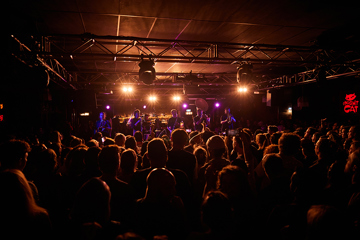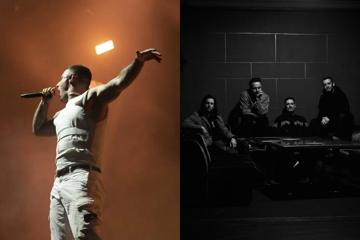I Fought The Lore
"So much of our history has been suppressed, and that creates a lot of fear and anger in the Australian psyche."
“I didn't really want to make a historical drama, and I certainly wasn't looking for one,” says Cate Shortland. But, when the filmmaker was at the Edinburgh Festival in 2004, someone gave her a copy of Rachel Sieffert's novel The Dark Room, a study of ordinary Germans dealing with the end of World War II, she was suddenly obsessed that it be her next project.
“Rachel writes from a very intimate point of view, and she never preaches,” Shortland explains. “She's looking at individuals, and looking at how societies affect them. From that, you get a quite profound feeling; she's not out on some thunderous crusade to enact justice through fiction, where these good people will triumph and these bad people will be punished. In the end, everyone is fallible, everyone is human, everyone makes mistakes. History isn't about good guys and bad guys, it's messier than that, and it's more personal than that.”
Thus, Shortland's follow-up to her debut Somersault – the film that took her to Edinburgh, and won an astonishing 13 AFI Awards – became Lore, another study of an adolescent girl (“I'm only interested in the female psyche,” she admits), this time set against the instant collapse of the Third Reich. Demanding to any interested producers that the film be shot on location in Bavaria, in German (“there's always, for me, a disconnect if you're watching a film set in, say, France, when they're speaking English; it's just kind of odd.”), Shortland set out to making a work of aesthetic realism, if beautifully, dreamily photographed.
It's a distinctly German film, too, dealing with how a group of children – its titular character, Lore, and her band of young siblings – reconcile the changing social climate with the doctrines they've grown up with. “There's a real central contradiction to the film, where you have these innocent blonde children who harbour this really murderous belief system. It's looking at a society in a tiny microcosm, essentially looking at a whole belief system through this one girl.”
Don't miss a beat with our FREE daily newsletter
Shortland threw herself into study of the Bund Deutscher Mädel, the girls wing of the Hitler Youth, and was struck, on discovering one story, of a girl's memories of blithely watching an elderly Jewish woman get kicked down the stairs of her apartment building, but then throwing up thereafter. “That was always in my mind, how human instincts were suppressed, and how empathy was one of many things you had to sacrifice for this regime,” Shortland says.
Lore recently won the audience award at the Locarno International Film Festival – “I never thought I'd ever get an audience award for one of my films” – offering approval from German-speaking audiences. In Europe, where there's a long-running dialogue conrinues to discuss the atrocities of the past, Shortland feels Lore will be a part of that conversation. In Australia, however, she sees it as having “a different life”, critically. “In Australia, we don't deal with our colonial history very well, we don't deal honestly with Indigenous issues. This is a film set in World War II Germany, but it could've just as easily been a film set in colonial Australia in which a girl is dealing with atrocities that her father had committed. So much of our history has been suppressed, and that creates a lot of fear and anger in the Australian psyche.”
WHAT: Lore
WHEN & WHERE: Opening nationally Thursday 20 September







